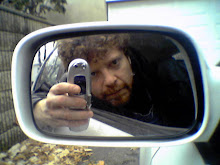Dan Jurgens, best known for his lengthy runs on various Superman titles, usually finds himself on the receiving end of a Q and A session. But the artist/writer extraordinaire who brought us such iconic works as “The Death of Superman” recently took some time out to interview author Clifford Meth, whose new book Comic Book Babylon (Aardwolf Publishing) is raising eyebrows.

Not to be confused with
Tim Pilcher‘s recent book about DC Vertigo UK,
Clifford Meth‘s
Comic Book Babylon is a brutal and frenzied behind-the-scenes view into the lives of many of comics’ most important creators. Artists and writers like
Alan Moore, Frank Miller, Walter Simonson, Joe Kubert and
Harlan Ellison enter into some of their most candid conversations with Meth as the author also details, for the first time, his historic battle (alongside partner
Neal Adams) to obtain royalties for X-Men co-creator
Dave Cockrum.
Jurgens: We all have comics we remember because of the impression they made on us in our youth. Might’ve been the story, the art, the character, a combination of all that or the chocolate malt you spilled on it. What’s the one single comic you remember from your youth, the impression it made on you and why?
Meth: I remember my first comic book pretty much the way I remember the first girl I slept with, although the comic lasted longer in retrospect. But the first comic that was important to me wasCaptain America #156, which concluded a story arc that had begun with issue #153. Steve Englehart was a master script writer and he’d decided to explore the conundrum that existed as Cap was frozen before the conclusion of World War II (until the Avengers rescued him in the 1960’s) but nevertheless continued to battle Reds in the red-scared ’50s. The Englehart series, which benefitted from Sal Buscema’s very clean, very enjoyable story-telling, defined Captain America for me. America’s savior had to be beyond politics, impervious to prejudice, not really super-human—despite that Super Soldier bullshit—but ethically flawless. They just don’t make saviors like that anymore.
Jurgens: You’re well noted for your willingness to step up and help some of the greats who came before us. Why? What sent you on the that path?
Meth: I was fairly young when I recognized that standing up to a bully, regardless of the consequences, was the only way to walk through life. That can be applied anywhere from the schoolyard to geo-politics. Men of good conscience can’t enjoy their meals when someone else is starving, but that’s especially true if the starving guy had his meal ticket stolen by a corporation.
Jurgens: If you could be any super VILLAIN in the world, who would it be and why?
Meth: Magneto. Not Stan Lee’s Magneto, who was over-bearing and mad as a fox, but rather Chris Claremont’s Magneto. The way Chris wrote him, Magneto had a moral imperative. Who can fault a man for wanting to protect his own kind? Charles Xavier never gained my partisan loyalty, or even my verisimilitude for that matter. It was always Magneto.
Jurgens: Your ultimate creative team and dream project you’d have them create?
Meth: I would have to pick John Lennon, Paul McCartney, George Harrison and Ringo Star and create an album, with George Martin producing. The final song would have to be an anthem of some sort, ideally by John, with guest vocalists in the choir, and Peppi Marchello would be there, and so would Phil Ochs. And I would have Jeffrey Jones paint the album’s cover and Roger Dean paint the inside gatefold and Allen Ginsberg would do a broadside insert that Sergio Aragones would illuminate. There’d be a pullout poster by Steranko and portraits of all the participants by James Bama. Martin Scorsese would document the entire “the-making-of” for later release, which Harlan Ellison would narrate. And I’d write the liner notes.
Jurgens: Coke or Pepsi?
Meth: Coke. I never quite got over Peppi's boycott of Israel.















